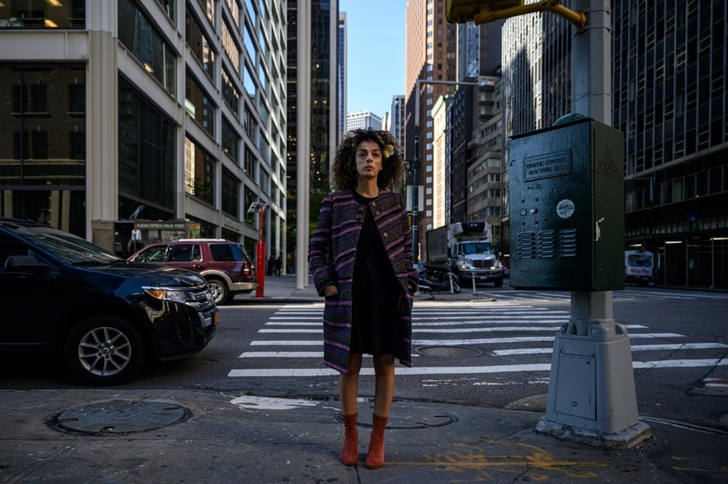Iran may use the Islamic veil as a tool of oppression, but the hijab is also the weakest pillar of an embattled regime trying to forestall its own "Berlin Wall" moment, an Iranian-American activist based in New York tells AFP.
Masih Alinejad, 45, who fled Iran in 2009, became known in 2014 after she launched a social media campaign called mystealthyfreedom.org that encourages Iranian women to protest against the obligation to wear the hijab in their country.
In her opinion, Iranian women rejecting the mandatory hijab will have a similar effect as the fall of the Berlin Wall in 1989, which marked the beginning of the end of the Soviet Union.
The journalist and activist now has 500,000 followers on Twitter and eight million followers on Instagram, where she posts dozens of photos or videos every day of Iranian women removing their hijab or images of the violent repression in her homeland.

Alinejad's public standing increased markedly in mid-2021, when US prosecutors indicted four "Iranian intelligence agents" for plotting in 2018 to kidnap her and whisk her back to Iran, where one of her brothers was also imprisoned.
Iran denied any involvement in the scheme.
- 'The weakest pillar' -
"To me, the compulsory hijab is like the Berlin Wall. If we tear this wall down, the Islamic Republic won't exist," Alinejad told AFP, a flower peeking out from her curly and voluminous hair.

"That actually shows you that compulsory hijab is the weakest pillar of the Islamic Republic. That is why the regime is really scared of this revolution," Alinejad said.
She argued that if Iranian women succeed in saying no "to those who are telling them what to wear, these women will be more powerful to say no to (a) dictator."
The crackdown on the demonstrations caused the death of dozens of people, human rights organizations say.
The hijab "is a tool to oppress us... to control women" and "to control the whole society through women," Alinejad said.
Iran's TikTok generation is protesting the use of women's bodies as "a political platform for our government, for the Islamic regime to write its own ideology."
- 'I'm not safe here' -

She offers a tart response that brings tears to her eyes: "I invite them all to go to Afghanistan, to go to Iran, live under Sharia law."
She routinely pillories Western leaders who comply with the obligation to wear a hijab during their visits to Iran, targeting in particular the former French minister Segolene Royal, or the former representative of the European Union, the Italian Federica Mogherini.
"The hijab can be a choice only the day that all women around the world can choose what they want to wear," she said.

Exiled life in the United States holds its own dangers. "I'm not safe here in America," she said, recalling the 2018 kidnapping attempt against her.
More recently, in late July, a man was arrested after loitering around her home in Brooklyn. The FBI found a Kalashnikov in his car. Since then, the activist has had to move.
arb/nr/tjj/to
© Agence France-Presse
Your content is great. However, if any of the content contained herein violates any rights of yours, including those of copyright, please contact us immediately by e-mail at media[@]kissrpr.com.
Source: Story.KISSPR.com

